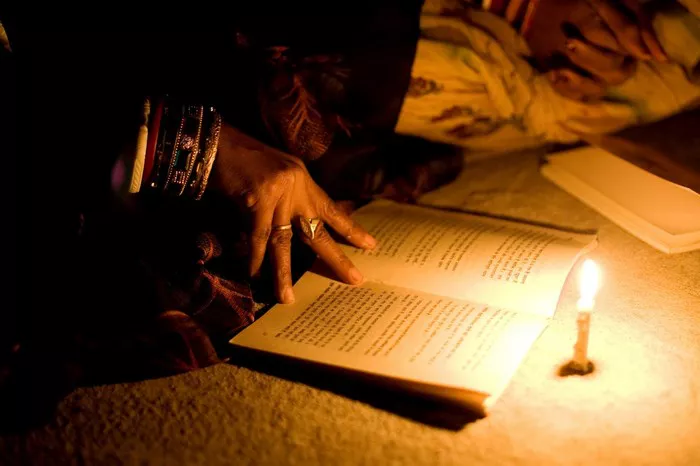Devotion, in its essence, embodies a profound commitment, often accompanied by dedication and loyalty, towards a person, cause, or belief. It manifests in various forms across cultures, religions, and personal relationships, playing a pivotal role in shaping human interactions and spiritual practices. Central to the concept of devotion is its connection to love, serving as a vehicle that transcends mere affection to foster deep emotional bonds and spiritual growth.
Defining Devotion: A Multifaceted Concept
Devotion encompasses a spectrum of meanings that span emotional, spiritual, and relational dimensions. At its core, devotion denotes unwavering allegiance and wholehearted commitment towards an object of reverence. This object can range from a deity in religious contexts to a loved one in personal relationships, or even to a cause or ideal that holds profound significance. The expression of devotion is often characterized by acts of service, sacrifice, and emotional investment, distinguishing it from fleeting emotions or temporary affections.
The Intersection of Devotion and Love
Love, a fundamental human emotion, shares a symbiotic relationship with devotion. While love can exist independently, devotion enriches and deepens its essence by adding layers of commitment, sacrifice, and steadfast loyalty. In romantic relationships, for instance, devotion may manifest through acts of selflessness, enduring support during hardships, and prioritizing the well-being and happiness of one’s partner above personal interests. Similarly, in familial bonds, parental devotion is exemplified through nurturing care, protective instincts, and unconditional support for children.
Forms of Devotion in Religious and Spiritual Contexts
Religious and spiritual traditions worldwide emphasize the significance of devotion as a means to connect with higher powers, transcendental truths, or spiritual ideals. Bhakti in Hinduism, for example, emphasizes loving devotion towards a chosen deity as a path to spiritual enlightenment and liberation from worldly attachments. Similarly, in Christianity, devotion takes the form of worship, prayer, and adherence to religious teachings as expressions of love and obedience to God. Across cultures, rituals, and practices associated with devotion serve as bridges that deepen the relationship between individuals and their spiritual beliefs.
Philosophical Perspectives on Devotion and Love
From a philosophical standpoint, devotion and love intersect in various schools of thought that explore the nature of human relationships and existential fulfillment. Existentialist philosophy, for instance, posits that authentic love involves a profound commitment and acceptance of another person’s individuality and existence. Devotion, in this context, becomes a deliberate choice to invest emotionally and ethically in nurturing relationships and personal growth, thereby enriching the human experience.
Psychological Dimensions of Devotion
Psychologically, devotion contributes to emotional well-being by fostering a sense of purpose, belonging, and identity. Attachment theory in psychology underscores the role of secure attachments formed through consistent acts of devotion, such as caregiving, mutual respect, and emotional availability, in promoting resilience and psychological health. Devotion within relationships provides a framework for emotional intimacy, trust-building, and shared experiences that contribute to personal growth and fulfillment.
Cultural and Societal Influences on Devotion
Cultural norms and societal expectations shape expressions of devotion within interpersonal relationships and community dynamics. In collectivist societies, for example, familial devotion extends beyond immediate family members to encompass broader kinship networks, emphasizing interdependence and communal support. Cultural rituals and traditions often reinforce expressions of devotion through ceremonies, festivals, and rites that celebrate shared values, histories, and beliefs, thereby strengthening social cohesion and identity.
SEE ALSO: Is a Devotion a Prayer? A Comprehensive Guide
The Evolution of Devotion in Modern Contexts
In contemporary society, the meaning and practice of devotion continue to evolve amidst changing social structures, technological advancements, and global interconnectedness. The digital age has facilitated new forms of devotion through virtual communities, online platforms for spiritual practice, and global networks that transcend geographical boundaries. However, challenges such as societal pressures, individualism, and conflicting priorities may influence the expression and sustainability of devotion within interpersonal relationships and spiritual pursuits.
Balancing Devotion with Autonomy and Self-Care
While devotion enriches relationships and spiritual growth, maintaining a healthy balance with autonomy and self-care is essential for personal well-being. Overwhelming devotion, characterized by excessive self-sacrifice or dependency, may lead to emotional burnout, resentment, or neglect of personal needs. Cultivating self-awareness, communication skills, and boundaries within relationships fosters mutual respect and reciprocity, ensuring that devotion remains a source of strength and fulfillment rather than emotional depletion.
Conclusion
In conclusion, devotion serves as a transformative force that deepens connections, fosters spiritual growth, and enriches the human experience through acts of commitment, sacrifice, and love. Whether expressed in religious rituals, familial bonds, romantic relationships, or personal quests for meaning, devotion underscores the capacity of individuals to transcend self-interest and embrace profound connections with others and spiritual ideals. By exploring the multifaceted dimensions of devotion and its intersection with love, we recognize its enduring significance in shaping identities, fostering resilience, and cultivating compassionate communities in an increasingly interconnected world.

